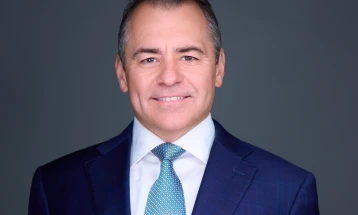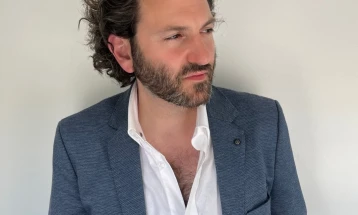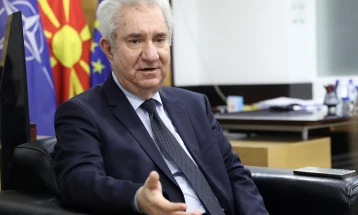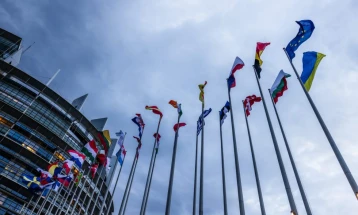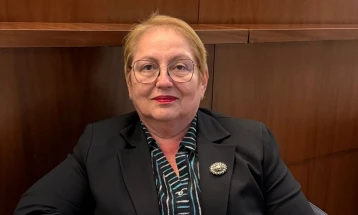What’s at stake at the EU’s 2040 climate target
- With the bloc reeling from a farmers’ revolt against green reforms, and four months before the EU elections, the EU unveiled this week its climate targets for 2040 and a roadmap for the next stage of its energy transition.
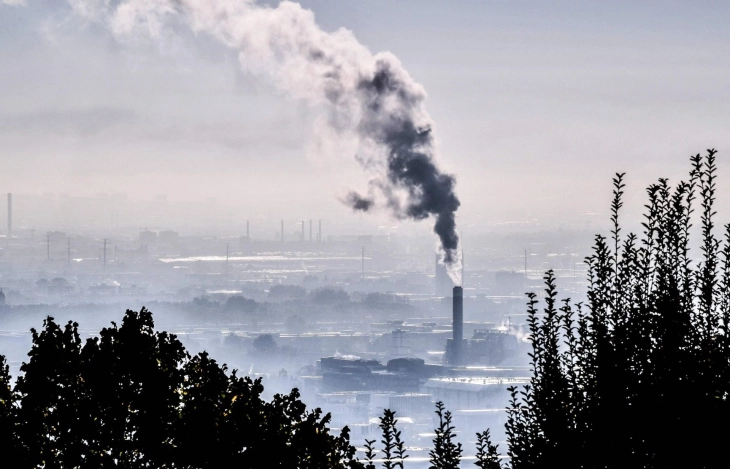
16 February 2024
ENR - Brussels
With the bloc reeling from a farmers’ revolt against green reforms, and four months before the EU elections, the EU unveiled this week its climate targets for 2040 and a roadmap for the next stage of its energy transition.
The 27-nation European Union has pledged to be carbon-neutral by 2050, and set a first interim target for 2030: to cut greenhouse gas emissions by 55 percent compared with 1990 levels.
For the next milestone after that – 2040 – the European Commission will aim for a net drop of 90 percent. This announcement came as widespread farmers’ protests clouded the bloc’s transition to a greener future. The farmers protested outside the European Parliament building, angry over shrinking incomes, rising costs and what they say are increasingly onerous green regulations.
The EU Climate Commissioner, Wopke Hoekstra, said the bloc would strive for a “fair transition”, allowing businesses to thrive and ensuring “nobody is left behind”.
In a sign of how politically fraught the environmental issue has become, European Commission President Ursula von der Leyen gave key ground earlier on Tuesday by burying a plan to halve chemical pesticide use by the end of this decade. She acknowledged that the proposal had “become a symbol of polarisation”, with the legislation stalling amid divisions between EU lawmakers and member countries. Rising discontent could hamper attempts to adopt the 2040 goal of 90 percent emission cuts.
The Commission stated that the new target would reduce premature deaths that occur each year due to poor air quality from 466,000 in 2015 to 196,000 in 2040. It also considers that the proposal sends “clear signals” and that the clean technology market will grow to approximately 600 billion euros in 2030.
Brussels says that the EU currently allocates four percent of its GDP to importing hydrocarbons, and it points out that between 2030 and 2050 the EU will have to invest an additional 1.5 percent of gross domestic product annually in the energy transition. It therefore suggests freeing up resources by moving them away “from less sustainable uses, such as fossil fuel subsidies”.
The proposal, which will fuel the pre-electoral debate, must be approved by the member states and the European Parliament. It slightly softens the level of ambition compared to previous drafts and removes direct references to the efforts that the agricultural sector must make.
Far-right and anti-establishment parties have latched onto the farmers’ movement and are predicted to make big gains in the EU June elections. Matteo Salvini, the leader of the Italian right-wing and anti-European League party, used the farmers’ protests across Europe to take a swipe at the EU. “Long live the farmers, whose tractors are forcing Europe to go back on the madness imposed by the multinationals and the left,” he said.
Backlash
There is an increasingly vocal backlash from some industries to the EU’s climate policies and several national leaders are now calling for a “pause” in new environmental rules.
Eleven EU countries, on the initiative of Denmark, including France, Germany, Spain and Slovenia had sent a joint letter to Brussels saying that the transition for an “ambitious” 2040 target needs to be “fair and just” and “leave no-one behind, especially the most vulnerable citizens”.
Ambition fell short for environmental groups
But for environmental groups, the Commission’s ambition fell well short of what was needed, for instance the absence of a target date for phasing out fossil fuels and related subsidies. “This is about as meaningful as a target to prevent lung cancer without any plan to end smoking,” said Greenpeace campaigner Silvia Pastorelli.
With the UN’s climate change body vying to limit global warming to 1.5 degrees Celsius above pre-industrial levels and “considering the EU’s responsibility for historical emissions, it would be fairer to aim for zero net emissions by 2040”, the World Wildlife Fund (WWF) group said.
It lamented the Commission dropping a goal of cutting agricultural emissions –– which account for 11 percent of overall EU emissions – by 30 percent, as had been evoked in a previous working document.
The European Consumer Organisation BEUC said that “however hard the Commission tries to handle farmers with kid gloves, facts are stubborn things: our food and agriculture systems contribute a big chunk of the EU’s climate impact”.
Bulgaria’s farmers
Bulgaria’s government negotiated with the Bulgarian National Grain Producers Association and according to Prime Minister Nikolay Denkov there is already consensus with farmers on the main points. However, after the meeting on February 4, the farmers started protests on Tuesday and blocked roads across the country, as they say they disagree with some of the points.
The main demands of the grain growers are legislative amendments to ensure economic security in the sector, an effort to change the conditions of the European Green Deal, and an allowance of BGN 200 per hectare (about 100 euros) to mitigate the effects of the war in Ukraine. According to farmers, the Bulgarian government should push for equalising the subsidies and the support for grain producers across the EU. In addition, they want changes and a relaxation of rules in the EU Green Deal that require crop rotation and diversification and minimising the share of arable land designated for non-production purposes.
Denkov said that he agreed on negotiations with the European Commission for easing the new environmental requirements.
Denmark’s Climate Minister Aagaard welcomes EU’s new 2040 target
The Danish Minister for Climate Lars Aagaard said that the Commission’s announcement comes at a moment where there is a battle for the climate in the EU: “We see demonstrations in European capitals and governments scaling back their ambitions,” he said. He added that “this is happening in countries that have traditionally been ambitious on the climate agenda. But we must not lose the battle, and I am therefore pleased that the Commission is following Denmark’s recommendation to set an ambitious target”.
He rejected the idea that the announcement could damage the credibility of the new climate target since the first climate target has not yet been finalised. “Creating confidence that climate policy will continue after 2030 creates credibility for the 2030 target,” he said. The new, high target comes at a time when several countries are already struggling to meet the 2030 target of a 55 percent reduction. Denmark, too, has yet to show the way to a significant amount of CO2 reduction.
Slovenia and Italy welcomed EU’s withdrawal of the pesticide regulation
Italian Agriculture Minister Francesco Lollobrigida also welcomed von der Leyen’s announcement to withdraw the proposal for a regulation on pesticides on Tuesday. “We should only further limit agrochemicals when we are able to protect production with alternative methods,” he said. “From day one we have opposed an ideological approach to the issue (of the ecological transition) that would have had a devastating effect on production and a very limited effect on the environment.” Italian Prime Minister Giorgia Meloni called the withdrawal “also an Italian victory”.
Following the announcement of the Commission President, Slovenia will also advocate for the individual treatment of pesticide use, said the newly appointed Minister for Agriculture Mateja Čalušić. The minister also stressed that the agricultural areas in Slovenia are fragmented, and before adopting a regulation, one needs to know what are the alternatives to protect crops.
Slovenia will have to step up its efforts to meet the Commission’s recommendation, Environment Ministry State Secretary Uroš Vajgl said on Tuesday. Vajgl believes the new 2040 target is achievable, but there needs to be a discussion on how to reach it.
Slovenian farmer representatives met Minister Čalušić on Tuesday who brought some solutions about direct payments. He said it would endorse the Commission’s proposal under which farmers would be exempt from having to leave some land uncultivated in 2024 while they would still receive financial support.
What now?
The Commission stressed that while the target is to reduce greenhouse gas emissions by at least 90 percent by 2040 compared to 1990 levels, the competitiveness of European industry must also be ensured and a strategic dialogue with industry and farmers must take place. The target for 2040 is not a legislative proposal, but initially a recommendation.
Eventually, the new target will also function as a roadmap for the upcoming Commission and will guide long-term investments in the race for green technology in which the United States, China, the European Union and other developed economies are immersed.
Meanwhile, farmers across the bloc carry on with protests.
Photo: ENR/dpa


